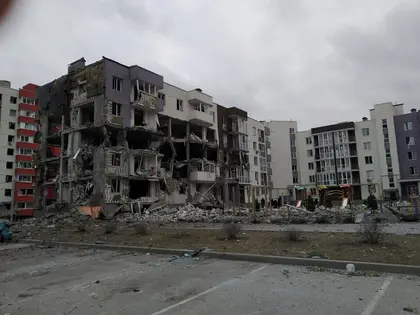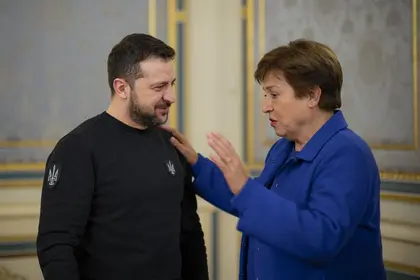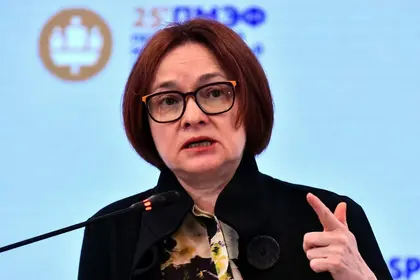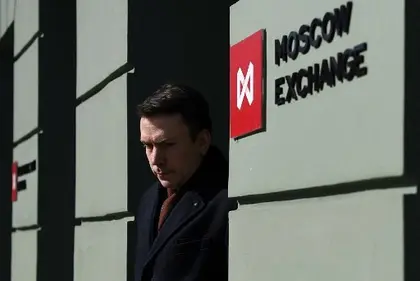The Ukrainian authorities and the International Monetary Fund (IMF) have reached a staff-level agreement, which means that Ukraine will be able to receive funds under a fully-fledged IMF program. For Ukraine to receive financing from the IMF, the fund had to change its lending policy, which will now allow for providing a loan during wartime.
Now the program is subject to approval by the IMF Executive Board. It is only a formal vote, although usually the Russians and Brazilians on the board oppose the decision.
JOIN US ON TELEGRAM
Follow our coverage of the war on the @Kyivpost_official.
What kind of program is it?
Ukraine will be able to receive approximately $15.6 billion over a four-year period. This year, the fund should provide a loan of about $4 billion.
It is not a big figure compared to assistance provided by the U.S. or the EU. However, it has an important symbolic meaning. As always, the IMF program has an anchoring role.
It demonstrates to other creditors that Ukraine is not doing silly things - not disrupting reforms or macro-financial stability. As usual, the IMF must certify that Ukraine is not making mistakes.
However, the fact that the IMF's share in financial support for Ukraine is not decisive has certain benefits. We got used to receiving the cheapest funding from the IMF. This is true if being compared with market financing.
Right now Ukraine is receiving money from its partners. The U.S. provides financial assistance in the form of grants – the funds don’t need to be repaid. The EU has given money in the form of loans but on preferential terms.

Frozen Russian Assets Have to be used for Ukraine Reconstruction
Given the above, the IMF is issuing a loan for quite a short term - up to 5 years (Europeans issue loans for 30-35 years) – and it is expensive, as it will cost up to 5 percent per annum.
What are the requirements this time?
The program is divided into two phases – each with different requirements.
During the first phase – the first 12-18 months of the program – we just need to maintain financial stability. In its forecast, the fund assumes that active hostilities will continue during this period and it would be irrational to demand anything more.
In the second phase the key reforms mainly concern the rule of law and the fight against corruption. These are reforms that, one way or another, will be duplicated in the plan for the European integration of Ukraine.
For now, the key issue is preservation of the macro-financial stability Ukraine has today - which is almost a miracle in wartime. In particular, the fund asks that we reject ideas that could harm the budget - such as any tax cuts supported by the Ukrainian political community.
What are the terms for the IMF to be able to issue a loan?
The IMF obtained guarantees from the G7 countries and at the same time the largest creditors of Ukraine who assure that they will support financial stability.
This rule is not only being applied to Ukraine - it also affects China due to its activity in Africa, where China issued loans without any requirements and without control over their use.
Some African states actively took out loans and China, the creditor, did not demand reforms. As a result, many countries got into debt and then appealed to the IMF. The IMF will now demand China's participation in assistance because they should be held accountable for their mistakes.
The IMF will also demand support from commercial creditors. All payments on external commercial debt are now frozen.
The Finance Ministry of Ukraine has already announced that it would start negotiations with Eurobond holders on the terms of restructuring in 2024. They understand everything there, which is evident from the cost of Ukraine's debt.
Sovereign Eurobonds are traded at about 20 percent of face value. Obviously, investors expect that a certain part of the debt will be written off, which one exactly - no one knows. That's why they assume the worst-case scenario, writing off 50 percent of the debt or more.
What is the IMF providing to Ukraine this time?
Usually, IMF loans are not only about money. However, this time the IMF is not a savior who pulls you out of the grave. Now it's just another lender - giving money and once again proving the solidarity of support from the civilized world.
The views expressed in this opinion article are the author’s and not necessarily those of Kyiv Post.
You can also highlight the text and press Ctrl + Enter






